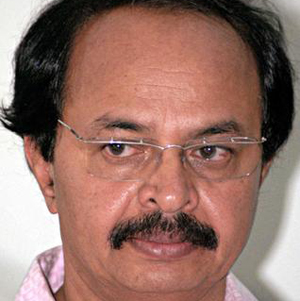Benagluru, Feb 27: The sudden hike in bus fares by the state-run transport corporation has triggered a public outrage and protests by the opposition Congress and the Janata Dal-Secular (JD-S) in Karnataka.
Terming the hike as anti-people and inflationary, the Congress urged the ruling BJP to withdraw it forthwith and spare the commuters from the additional burden.
"KSRTC and its affiliates should not further burden the people when the cost of living has gone up and its bus service is used by the majority in the absence of trains in many regions of the state," said Ravi Gowda of the Congress.
In a surprise announcement on Tuesday night, the Karnataka State Road Transport Corporation (KSRTC) and its two affiliates -- North Eastern Karnataka Road Transport Corporation (NEKSRTC )and North Western Karnataka Road Transport Corporation (NWKSRTC) -- increased bus fares by 12% with effect from Wednesday, drawing the ire of commuters and opposition parties alike.
Condemning the fare hike, JD(S) leader and former Chief Minister H D Kumaraswamy urged the KSRTC to roll back the revised fares and give relief to the common man reeling under price rise due to CGST, SGST and food inflation.
"The BJP government has deliberately increased the bus fare ahead of the state budget for 2020-21 fiscal on March 2, catching people unawares. Though student passes have been spared from the hike, regular passengers are forced to pay Rs 5-32 more instead of getting better efficiency, management and productivity," Kumaraswamy said in a statement in Bengaluru.
It's an additional burden on us, said Bengaluru resident K. Venkatesh, while adding,
"The 12 percent hike in bus fares by the KSRTC and its north-east and north-west affiliates from Wednesday will hit passengers hard and make commuting costly.”
"The fare hike will negate the state government's efforts to encourage public transport service and force passengers to travel on the train, which is cheaper, faster and safer," asserted Venugopal Gupta, a cloth merchant in the city.
Justifying the hike, KSRTC Managing Director Shivayogi Kalasad told media that the hike was inevitable due to the steady increase in diesel price, dearness allowance in staff salary and overall cost of operations.
"Since the last fare revision came in May 2014, the operational cost has gone up substantially due to Rs 11.27 per litre hike in diesel price, increase in DA to employees and repairing, maintenance and fleet management costs," Kalasad said.
The financial burden due to fuel price hike is Rs 261 crore, DA Rs 341 crore and operational cost Rs 601 crore per annum for KSRTC alone, he said.
"For the benefit of rural passengers, fares have been reduced to Rs 5 from Rs 7 for the first 3 km. There is no increase in fares for the first 12 km and up to first 6 km in express service," Kalasad added.
 Shivamogga, Nov 12: Film director Nagathihalli Chandrashekar and two others sustained injuries after a swarm of honeybees attacked them at Baruve village near Kodachadri Hills in Hosanagar taluk on Wednesday.
Shivamogga, Nov 12: Film director Nagathihalli Chandrashekar and two others sustained injuries after a swarm of honeybees attacked them at Baruve village near Kodachadri Hills in Hosanagar taluk on Wednesday.





Comments
Essas e outras perguntas são essenciais para que a contratação de
uma agência de advertising digital seja justificada, não só pelo investimento financeiro, mas também pelo investimento
de tempo e exposição da imagem que a empresa vai fazer com as estratégias de comunicação on the web
propostas por ela.
my blog post :: o que faz uma agencia de
marketing digital: http://www.sheilaengideoncollections.com/?option=com_k2&view=itemlist&t…
Add new comment